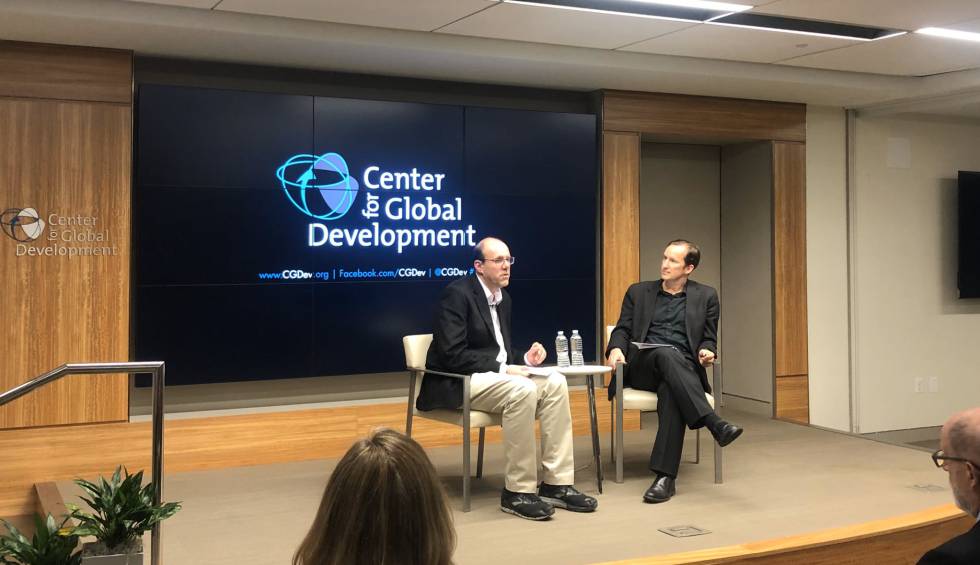
He majored in social studies at the university and has
just won the Nobel Prize in Economics for his research on poverty and
development. How did you get here? Asked last Wednesday for his beginnings in this field, in a talk at the
Center for Global Development in Washington, Michael Kremer (New York, 1964)
quotes his conviction: "We have a moral obligation, when there are people
who are suffering and even dying and even dying and there's something we can do
about it, about getting involved".
Now, Kremer hopes that the prestigious award, which he
has received together with Abhijit Banerjee (Bombay, 1961) and Esther Duflo
(Paris, 1972), will help to strengthen the studies and practical applications
of the development economy, in which he is considered a pioneer. "Yes, we want economic growth
and it's the most important thing in the long run, there's no doubt", he
says. "But in the meantime, people die because they don't have access to
clean water". And that's where the development economy prioritizes acting
now.
The
American economist, a Harvard University professor and a non-resident
researcher at the Center for Global Development (among other entities), delves
into his example on water: "We first thought about protecting the springs,
improving infrastructure". But it wasn't enough. E. Coli bacteria
counts (which can cause diarrhea and respiratory and urinary tract infections,
among other diseases) had decreased at source, but increased in homes. The
water was polluting again.
The solution? Instead of selling small canishem
ingessfore for the houses, they decided to install public containers at the
water collection points, so that the product could be added directly at the
same point. Treatment rates increased from 7% to 50%, according to Kremer.
"It's
about applying general knowledge to reality and analyzing the impact", the
economist summarises. "I'm not saying they're going to turn Kenya into
Singapore, but maybe a lot of little things, along with some big ones, will
turn Kenya into Singapore, and each of them helps", he says.
In addition, remember that these researches may offer
practical solutions that do not require large-scale changes. Examples of this
are studies that have shown that offering free books does not improve school
outcomes and, on the other hand, booster classes, do. "Five million children benefit from this
type of education in India and efforts are also expanding in African countries".
Although he warns of his great difficulty, Kremer
stresses the importance of moving theoretical results into practice. Like your
development of a venture capital fund for projects at the U.S. Development
Agency (USAID). Or their participation in the working group that raised an
early market commitment to encourage the creation of a pneumococcal vaccine
(which can cause pneumonia and meningitis, among others) in the poorest
countries.
"The
original idea was to do it for something like malaria, a much more distant
technological goal", he recalls, as one of the best-known aspects of a
project. However, it is satisfied, because this initiative enabled
pharmaceutical and biotech companies to investigate a disease that they
traditionally did not pay attention to because of a lack of economic benefit.
That connection between theory and practice is the one in
which he plans to continue to overturn. Among the ideas he is enthusiastic
about, he highlights digital development and the growing involvement of
researchers from developing countries. Always, with economics as a tool and
"end in itself", as well as "a very important end in
itself" – defines the need to "address the practical problems of the
world and, in particular, the terrible problem of poverty".
SOURCE: El País
